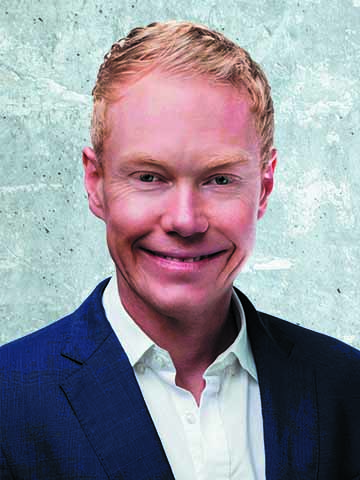How can Global HR innovate to deliver greater support for the multicultural businesses of today? The ever-increasing complexities of people management, communication, systems and business needs in a global world present significant challenges. On the 23rd of March, The Chapman Consulting Group and Sanofi co-hosted over 20 Paris-based HR Leaders from companies as diverse as Alcatel-Lucent, BNP, Levi’s, Plastic Omnium, Rio Tinto, Sodexo, and others, to discuss and exchange ideas on how to best meet these challenges.
HR Trends
Matthew Chapman, CEO of ChapmanCG, launched the session with a detailed presentation of key HR trends gathered through the extensive global search work undertaken by the company’s team of consultants. Focusing first on regional trends, Matthew highlighted the recent rise of “international-mindedness” among U.S. HR Leaders, who are now getting more involved in global strategy. In Europe, international talent remains sought-after, particularly those who have lived in multiple countries and are willing to move within the EU. The Middle East is slowly splitting from the traditional EMEA structure, to become a standalone region with Dubai, Abhu Dahbi and even Barhain becoming regional and international hubs. Finally, Asia is still booming, and we will continue to see Singapore’s popularity grow as an APAC hub. In addition the rapid growth of the ASEAN countries continues, which is resulting in more regional talent mobility. China is now often considered a region in its own right, with Shanghai becoming a more common choice for HQ than Beijing, with the exception of the Technology and Pharmaceutical industries.
Transforming L&D: How to Create Value?
Our host Nuno Goncalves, Associate Vice President, Group Head of Learning at Sanofi, presented on an innovation he implemented to ensure that the Learning & Development function became a creator of ‘value’ for the company. Nuno used the following analogy to illustrate the potentially problematic relationship between the business and L&D: “The key to having an impactful Learning Organisation relies on our ability to collect business insights — their needs, not their wishes. No doctor prescribes what a patient ‘wants,’ but rather what he ‘needs.’ We have to do the same, but for that we need to master the art of diagnosing, with deep learning and business expertise, supported by credible tools, methodologies and reliable data.”
In many complex international companies, it is common to find large numbers of L&D programmes on offer throughout the organisation, which are not being utilised. This is generally due to the challenges of co-ordinating the function globally, and the need to respond to the latest pressing demand from the business. Nuno decided to address this issue using a new ‘Business Model Canvas’ to speak with business leaders about their business’ needs, rather than speaking about the business’ wishes. This new philosophy was enabled by the use of this innovative tool which increased value for the organisation by utlilising L&D more effectively.
Innovating for Experts
We then moved on to another example of innovation, which was presented by Herve Borensztejn, Managing Partner at consulting firm Karistem, and former Senior HR VP at global pan-European aerospace and defence corporation, EADS. During his time at EADS Herve and his team had to reinvent existing HR policies for a small (1% of the total population of the group) but critical population of scientific and technical experts who were at the very heart of the business. From job grading to performance management, the specificity of their roles meant that the existing HR policies did not take into account the degree of importance of this group. For instance, a researcher or a technical expert who had gained an incredible depth of knowledge in his domain would inevitably hit a glass ceiling, simply because he or she did not have people management responsibilities. This career development barrier had a significant impact on the retention rate of this population, which was difficult to train and highly valuable for the group.
Herve decided to change the recognition scheme to an individual model, allowing the seniority and intrinsic value of an expert to be rewarded, offering career development options within the group, regardless of people management responsibilities. This new model has been a success, and along with a sustainable succesion planning programme, has allowed the group to drastically improve the retention rate of experts. “By changing the full career path for experts to an individual recognition model, we managed to hit a full retention rate, in addition to a significant increase in engagement.” Herve said.
Restructuring Performance Reviews
Eric Hurel, International HR Director at Actelion, shared with the group the innovation he applied for the organisation’s 2000 person Pharmaceutical group. Initially, Eric was acting as a central point of contact for business line managers in 30 countries when they reported on performance reviews. This presented problems in terms of time and efficiency, as this was all done by hand over Excel until Eric implemented an HR system to reinvent and simplify the performance review process. This global decentralised system would allow the line managers to access budget, market data and HR team guidelines, in addition to tracking all proposed salary increases and bonuses. The reviews could then be submitted to the Global HR team, who would advise and validate the proposition made by the line managers. This streamlined the process, delivering excellent results in terms of efficiency and information sharing.
Conclusion
Overall, this lively session provided the ideal forum for exchanging ideas and experiences around the innovative and evolving practice of global HR. All attendees agreed that innovation must be a mandatory component of both business generally, and HR specifically. It is up to the HR Leaders to think outside the box and make decisions that will bring success to the people and the organisation. Matt Chapman concluded, “International companies are going through constant change nowadays. HR must now understand change, so it can become the function bringing stability.” Many thanks go to Nuno Goncalves and his team at Sanofi for hosting this valuable session, and we look forward to bringing the group together again later this year.
Key Contributors:


 Andrea Merrigan
Andrea Merrigan Orelia Chan
Orelia Chan Stanislav Medvedev
Stanislav Medvedev Fleur Daniell
Fleur Daniell Finian Toh
Finian Toh Tim Rayner
Tim Rayner Nicola Hasling
Nicola Hasling Stefanie Cross-Wilson
Stefanie Cross-Wilson


